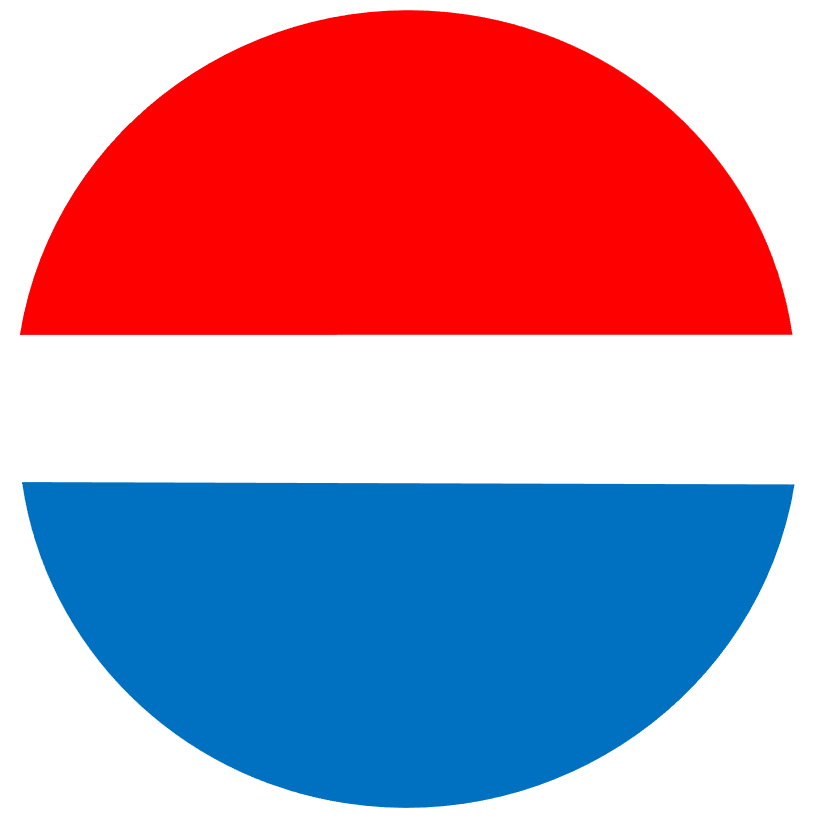Introduction
An ‘employer’ in this article also refers to an employer subject to Dutch wage taxation. This article only covers the situation where an employer pays out the 30% tax reimbursement to the employee.
Historical background
After the Second World War, the Netherlands, as well as the rest of Europe lay in ruins. There was a general shortage of skilled labour. In order to rebuild, European countries relied to a large extent on foreign skilled personnel, who – for a large part – came from the United States. In order to make the Netherlands a more attractive choice, the Dutch government introduced a scheme to compensate some of the costs incurred while working in the Netherlands.
In 1970 this scheme was followed up by the so-called 35%-ruling, which – if employees met the necessary conditions – applied to all incoming employees in the Netherlands. The effect was that the maximum marginal tax rate on income at the time of 72% was effectively lowered to a more competitive international tax rate. This ruling was tweaked throughout the years and was successful in attracting non-Dutch domiciled employees, as well as foreign companies to the Netherlands.
In 2001 the 35%-ruling was adjusted, making way for the 30%-ruling. Following increasing social criticism, as well as a rise in case law regarding the applicability of the 30%-ruling, ongoing adjustments were (and are being) made.
Even though the 30%-ruling is constantly under scrutiny, the government – for the time being – is of the opinion that the advantages the 30%-ruling outweigh the perceived negatives. It is unlikely that the 30%-ruling will be completely abolished in the near future.
What is the 30%-ruling?
The Dutch Wage Tax Act of 1964 (Dutch WTA) makes it possible for employers to reimburse relocation expenses made by employees, when relocating on a temporary basis. These expenses are also referred to as ‘extraterritorial costs’. An employer can either reimburse the effective extraterritorial costs, or he can reimburse 30% of the gross annual salary free of taxes. One advantage of reimbursing 30% of the gross annual salary, is that the employer and the employee don’t have to prove that the expenses were actually made, thereby saving time and money in administrating these actual expenses. Another advantage is that any employee who falls under the 30%-ruling gets an automatic tax free reimbursement, regardless if this employee actually incurred extraterritorial costs.
Example
As an example, an expat subject to the 30%-ruling has a gross annual salary of € 100,000. A maximum of 30% of this amount (€ 30,000) can be paid out free of taxes as extraterritorial costs. The remaining 70%, or € 70,000, will be subject to Dutch wage and income taxation.
What are extraterritorial costs?
In short, extraterritorial costs consist of extra expenses which are directly linked to a cross-border relocation. However, not all extra expenses qualify as extraterritorial costs. Some of these expenses qualify as free reimbursements and benefits as mentioned in the Dutch WTA, while other expenses can’t be freely reimbursed, but are a part of the employee’s taxable gross salary. Furthermore, if an expense qualifies as an extraterritorial cost, it can’t also qualify as a free reimbursement or benefit, or as part of the gross salary. In this respect, the State Secretary for Finance published a decree (Dutch language only) outlining how the various expenses should be qualified:
1) Extraterritorial costs cover:
- Cost of living allowances;
- Expenses related to house-hunting, finding schools and general acquaintance trips to the country of relocation;
- Costs made in obtaining all necessary documents, permits, medical exams and vaccinations;
- Storage expenses for household goods, etc. in the country preceding the relocation;
- Temporary double housing expenses (such as hotel expenses);
- Housing expenses which exceed 18% of the taxable salary. Housing costs lower than 18% are deemed part of the taxable salary;
- Transportation costs related to home leave;
- Extra expenses made for the filing personal income tax returns in the country of origin;
- Expenses made by the employee and his relocated family for language courses in the local language;
- Expenses made for private telephone calls to the country of origin.
2) Free reimbursements and benefits:
- Relocation expenses;
- Moving allowances;
- Storage expenses other than the abovementioned storage expenses;
- Commuting expenses;
- Business meals.
3) Taxable items contributing to gross salary:
- Foreign service premiums;
- Expat allowances;
- Reimbursements for losses due to the selling of (for example) the main residence, or car(s) in the home country;
- Overseas allowances;
- Housing costs lower than 18% are deemed part of the taxable salary;
- All reimbursements of expenses related to the purchasing of a residence;
- Tax equalization.
School fees
School fees for primary and secondary education at international schools, as well as at international departments of local schools aren’t covered by the 30%-ruling. An employer may reimburse the actual costs incurred tax-free for the duration of the 30%-ruling.
Other tax benefits
Dutch tax residents have to report their worldwide income in an annual Dutch personal income tax return. According to the Dutch Income Tax Act 2001 all income is allocated to one of three so-called boxes. This is defined as follows:
Box 1 essentially covers all income derived from (self-)employment, as well as income from an owner-occupied residence. The income from owner-occupied residency includes paid mortgage interest, which is tax deductible.
Box 2 covers all income from substantial ownership (5% or more) in a company (such as a Dutch BV). This income consists of regular benefits (e.g. dividend payments) and capital gains (e.g. received for selling shares in the limited company).
Box 3 includes all income from savings and investments. The value of the worldwide assets, minus debts, as of 1 January of the respective tax year is associated with a fictitious gain, which in turn is taxed. This is essentially how assets are taxed in the Netherlands, meaning that there are no specific capital and capital gains taxes.
For the duration of the 30%-ruling the employee is considered as a partial tax resident. This means that the employee is taxed on his income in box 1. For taxation in boxes 2 and 3 he is treated as a non-resident. As a result, for example, no income tax is due on the employee’s bank- and savings accounts, as well as stocks and non-Dutch real estate. However, non-owner occupied Dutch real estate, as well as income from a (5% or more) share ownership in a Dutch company is subject to Dutch income taxation.
In an effort to increase tax revenues, it is expected that the Dutch government will put an end to this tax benefit in the near future.
Drawbacks
The benefit of receiving 30% of your income tax free can have negative implications which depend on tax ceilings and tax brackets. For example in cases of unemployment and mortgage interest deduction, which both use gross salary as an indicator.
Eligibility for the 30%-ruling
The 30%-ruling is accessible to extraterritorial employees. Extraterritorial employees are considered as highly skilled migrants working temporarily in the Netherlands (expats) and certain Dutch employees sent abroad (such as diplomats). This article only covers the eligibility for the 30%-ruling for expats.
An expat is eligible for the 30%-ruling if the following conditions are met:
- The expat is employed by a Dutch-resident employer;
- The expat has a specific professional expertise that is scarce or not available in the Netherlands;
- The expat lived more than 150 kilometres outside the Dutch border in at least 16 of the 24 months prior to employment in the Netherlands.
Specific professional expertise
In order to meet the condition of specific professional expertise, the expat has to earn an annual taxable salary of at least € 41,953 (2023). For expats younger than 30, with a master’s degree, a lower annual taxable salary of € 31,891 (2023) applies.
Expats conducting scientific research at a Dutch university as well as medical specialists in training are always deemed as having a specific professional expertise. This means that this group of expats doesn’t have to meet the minimum salary requirement.
The scarce-or-not-available requirement
The scarce-or-not-available requirement generally takes the following three factors into account:
- Level of education;
- Prior relevant experience required for the function;
- Dutch salary in relation to the salary in the country of origin.
150 km-zone
Expats who live more than 150 kilometres outside of the Dutch border longer than 16 months of the 24 months prior to the start of employment in the Netherlands are eligible for the 30%-ruling. The idea being that only this group makes (significant) extraterritorial costs. Besides the ‘obvious’ border countries, the 150 kilometre-zone also includes a part of the United Kingdom!
There are three exceptions to this rule:
1) Expats who previously lived in the Netherlands and meet the following three conditions, are eligible for the 30%-ruling:
- The expat was previously employed in the Netherlands in the eight years prior to the current employment;
- Between the previous period and current employment, the expat lived more than 150 kilometres from the Dutch border for more than 16 months of the 24 months; and
- During the previous employment, the 30%-ruling was applicable to the expat. If not, the expat will need to prove that during that previous employment he would have met the conditions for the 30%-ruling.
2) Expats who start working in the Netherlands after their successful completion of their PhD research and who meet the following two conditions are eligible for the 30%-ruling:
- If, between the commencement of the PhD research and current employment, the expat lived in the Netherlands, or within 150 kilometres from the Dutch border; and
- If prior to the commencement of the PhD research, the expat lived more than 150 kilometres from the Dutch border or more than 16 months of the 24 months.
3) If an expat changes (Dutch) employers during the period of applicability of the 30%-ruling, the 150 kilometre-condition doesn’t apply.
Applying for the 30%-ruling
In principle, the 30%-ruling applies for the first five years of employment in the Netherlands. Assuming that the abovementioned conditions are met, the employer and employee have to submit a joint request to the Dutch tax authorities. The request must be submitted within four months of starting employment. If the request is submitted after these four months, the ruling is effective as per the first day of the month after the month in which the request was submitted. Beware that a later submission will result in a shorter duration of the ruling!
Annual choice between reimbursing through actual expenses or the 30%-ruling
For the duration of the 30%-ruling, starting 1 January 2023, every January a choice must be made between the reimbursement of actual extraterritorial costs and reimbursement through the 30%-ruling.
Salary cap
From 1 January 2023 onwards, expats starting their employment in the Netherlands will have a salary cap applied to the 30%-ruling. This salary cap is effective as of 1 January 2024. The annually indexed cap is based on a salary of € 223,000 (for 2023).
Expats already covered by the 30%-ruling on 31 December 2022 will only be affected by this measure as of 1 January 2026. If the expat changes employees after 1 January 2023, the salary cap will apply as of 1 January 2024.
Change of employer
If an expat changes employer and continues to meet the conditions, a continuation of the 30%-ruling can be applied for. This request has to be submitted within three months of the termination of the previous employment position.
Duration of the 30%-ruling
As per 1 January 2019 the maximum duration of the 30%-ruling is five years. 30%-rulings issued prior to 1 January 2019 had a maximum duration of eight years. Upon lowering the duration from eight to five years, the government implemented a transition period for rulings issued prior to 1 January 2019 as follows:
| Original end date | New end date |
| In the course of 2019 and 2020 | Unchanged |
| In the course of 2021, 2022, 2023 | 31 December 2020 |
| 31 January 2024 and after | 3 years prior to original end date |
Discount due to previous employment or stay in the Netherlands
If in 25 years prior to applying for the 30%-ruling, the expat previously worked, or stayed in the Netherlands, this period will be subtracted from the maximum duration of five years.
Is there a check to see if the requirements of the 30%-ruling are still met?
For the duration of the 30%-ruling, the employer needs to continuously check if the minimum requirements are maintained. The most obvious check is if the minimum salary requirements are met. As soon as one of the requirements isn’t met, the 30%-ruling no longer applies.
What happens when the ruling ends, or if the ruling cannot be applied?
When the ruling ends, or in the event the 30%-ruling cannot be applied, the employer can still reimburse the employee for the actual extraterritorial costs made in relation to living and working in the Netherlands. From that point on the expat is taxed as if he is a full Dutch tax resident. The expat will be taxed in the Netherlands on his worldwide income and assets. In this respect a Dutch personal income tax return will have to be filed.
In conclusion
The 30%-ruling gives employers the possibility to reimburse expenses made by their employees due to their temporary relocation to the Netherlands, without having to prove if these expenses are really made. The 30%-ruling is continuously being adjusted. It is important to keep monitoring the current rule requirements, as well as to be aware of future plans. Would you like to learn more, or do you need any assistance in dealing with the issue? Please don’t hesitate to contact me!





